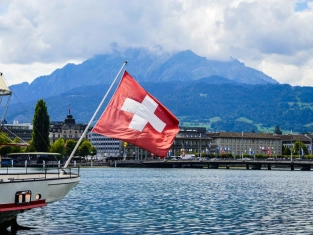by PushtoLearn
Which Languages Are Spoken In Belgium?
Table of Contents
The Three Official Languages of Belgium
Belgium has three official languages:
|
Language |
Region Spoken |
Percentage of Population |
|
Dutch (Flemish) |
Flanders (North) |
~60% (6.5 million) |
|
French |
Wallonia (South) & Brussels |
~40% (4.5 million) |
|
German |
Eastern Belgium (Liege Province) |
~1% (75,000) |
While Dutch and French dominate, German is spoken by a small minority in the east—a remnant of Belgium’s shifting borders after World War I.
Dutch (Flemish) – The Most Spoken Language
-
Spoken by: ~60% of the population (mainly in Flanders).
-
Where? The northern Flemish Region (Antwerp, Ghent, Bruges, Leuven, etc.).
-
How different is Flemish from Dutch?
-
It’s essentially Standard Dutch but with a different accent and vocabulary.
-
Similar to the difference between British and American English.
-
Example: The Dutch word for "carrot" is wortel, but in Flemish, it's often called peen.
✅ If you speak Dutch, you can get by in Flanders easily!

French – The Second Most Spoken Language
-
Spoken by: ~40% of Belgians (mainly in Wallonia and Brussels).
-
Where? The Walloon Region (Namur, Liège, Charleroi, Mons, etc.) and Brussels.
-
Differences from Standard French?
-
Belgian French has a unique accent and vocabulary.
-
Some words are borrowed from Flemish or older French expressions.
-
Example: Seventy in Belgium is septante instead of France’s soixante-dix.
✅ If you speak French, you’ll be fine in Wallonia and Brussels!
German – The Lesser-Known Official Language
-
Spoken by: ~1% of Belgians (~75,000 people).
-
Where? The eastern region of Liege, near the German border.
-
Why is it spoken here?
-
This area was part of Germany until 1919, when it was given to Belgium after World War I.
-
The German spoken here is very close to Standard German.
✅ If you speak German, you’ll be fine in the eastern part of Liege!
Other Languages Spoken in Belgium 🌍
Besides the three official languages, you’ll also hear:
🗣 Luxembourgish (Arelerland region)
-
Spoken in southern Belgium, near Luxembourg.
-
Not an official language but recognized as a minority language.
🗣 Regional Dialects
-
Flemish dialects: Limburgish, Brabantian, East/West Flemish.
-
Walloon dialects: Walloon, Picard, Champenois, Lorrain.
🗣 English – Widely spoken in Brussels, but not everywhere!
-
Brussels is home to the European Union and many international organizations.
-
However, locals often prefer French, and English is not as commonly used in everyday situations.
Languages Spoken in Brussels 🏙
Brussels is officially bilingual (French and Dutch), but the reality is different:
✅ French dominates.
-
Historically, Brussels was Flemish-speaking, but French became the dominant language in the 19th century due to social prestige.
-
Today, most people speak French in daily life, and many don’t speak Dutch at all.
✅ Dutch is still an official language.
-
All street signs, transportation, and government services are in both Dutch and French.
-
However, you’ll rarely hear Dutch spoken in casual conversations.
✅ English is helpful, but not always accepted.
-
Many people assume Brussels is English-friendly, but outside of the EU bubble, French is still king.
-
Some locals dislike being addressed in English without at least an attempt at French.
🚨 Tip: If you visit Brussels, start with "Bonjour" before switching to English—it goes a long way!
Language Politics in Belgium: A Divisive Issue ⚖️
Belgium’s multilingualism is a hot political topic. Unlike Switzerland, where multiple languages coexist peacefully, Belgium has struggled with:
❌ Tensions between Flemish and French speakers
-
Many Flemish people resent the dominance of French in Brussels.
-
In Wallonia, knowledge of Dutch is low, leading to language barriers.
❌ Brussels’ unique situation
-
Though inside Dutch-speaking Flanders, Brussels is overwhelmingly French-speaking.
-
This has led to political debates over language rights and regional autonomy.
🚨 Tip: Avoid addressing a Flemish person in French or a Walloon in Dutch—this can be seen as politically insensitive!
FAQs
What is the main language in Belgium?
Dutch (Flemish) is the most spoken language (~60% of Belgians), mainly in Flanders.
Can I get by with English in Belgium?
In Brussels, yes—especially in international areas. But in Wallonia and Flanders, knowing French or Dutch is essential for daily life.
Why do people in Brussels speak French instead of Dutch?
French became the dominant language due to historical prestige and migration trends. Today, Brussels is legally bilingual but functionally French-speaking.
Is Flemish the same as Dutch?
Flemish is a regional variant of Dutch with different accents and vocabulary, but it’s mutually intelligible with Standard Dutch.
What should I say when greeting someone in Belgium?
-
In Flanders: Use Dutch ("Hallo" or "Goedendag").
-
In Wallonia: Use French ("Bonjour").
-
In Brussels: Start with French ("Bonjour") before switching to English.

